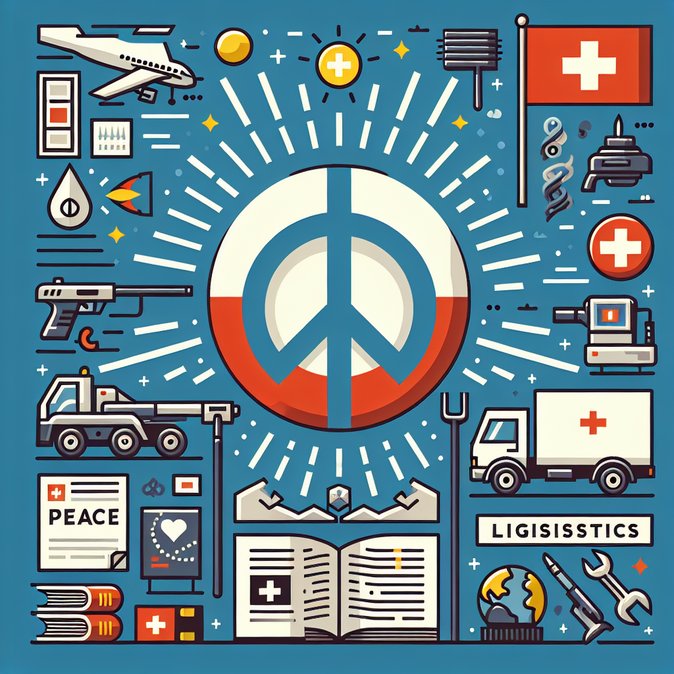
At its 5 November 2025 session, the Federal Department of Foreign Affairs (FDFA) informed the cabinet that Switzerland will contribute CHF 20 million and dispatch specialist teams in international humanitarian law, de-mining and logistics to support the US-brokered peace plan for Gaza. The announcement has immediate mobility and duty-of-care implications for NGOs, contractors and media organisations sending personnel to Israel or the Palestinian territories.
The deployment will be managed by Swiss Humanitarian Aid’s rapid-response roster, which has already identified 40 professionals ready to travel within 72 hours. While the FDFA emphasised that movements will be coordinated with UN OCHA and follow existing security protocols, employers are being advised to update travel-risk assessments, confirm insurance coverage for war zones and register staff on the government’s "Travel Admin" app.
![Bern Releases CHF 20 Million and Deploys Experts to Gaza, Creating New Travel and Security Considerations for Swiss Staff]()
Swiss businesses with operations in the region welcomed the clearer policy signal. A pharmaceuticals firm with clinical-trial sites in Tel Aviv said the extra humanitarian presence "should translate into more predictable access corridors for cargo and personnel." Nevertheless, travel security consultants still classify Gaza and parts of southern Israel as "Level 4 – Reconsider Travel," meaning corporate travellers require executive approval and hostile-environment training.
From a compliance perspective, the FDFA reiterated that Swiss export-control licences for dual-use goods remain suspended for Gaza. Companies relocating technical experts must ensure they are not hand-carrying prohibited equipment. Immigration lawyers also note that Israeli border officials have started asking more detailed questions about travellers’ humanitarian or media credentials; Swiss passport holders are advised to carry invitation letters and proof of onward travel.
Global mobility leaders should monitor updates from the FDFA and the Schengen Integrated Border Risk Analysis Network (IBRAN) and be prepared to adapt evacuation plans. Employers making use of the Swiss International Cooperation Act to second staff can apply for tax relief on hardship allowances and danger pay introduced under internal policies.
The deployment will be managed by Swiss Humanitarian Aid’s rapid-response roster, which has already identified 40 professionals ready to travel within 72 hours. While the FDFA emphasised that movements will be coordinated with UN OCHA and follow existing security protocols, employers are being advised to update travel-risk assessments, confirm insurance coverage for war zones and register staff on the government’s "Travel Admin" app.

Swiss businesses with operations in the region welcomed the clearer policy signal. A pharmaceuticals firm with clinical-trial sites in Tel Aviv said the extra humanitarian presence "should translate into more predictable access corridors for cargo and personnel." Nevertheless, travel security consultants still classify Gaza and parts of southern Israel as "Level 4 – Reconsider Travel," meaning corporate travellers require executive approval and hostile-environment training.
From a compliance perspective, the FDFA reiterated that Swiss export-control licences for dual-use goods remain suspended for Gaza. Companies relocating technical experts must ensure they are not hand-carrying prohibited equipment. Immigration lawyers also note that Israeli border officials have started asking more detailed questions about travellers’ humanitarian or media credentials; Swiss passport holders are advised to carry invitation letters and proof of onward travel.
Global mobility leaders should monitor updates from the FDFA and the Schengen Integrated Border Risk Analysis Network (IBRAN) and be prepared to adapt evacuation plans. Employers making use of the Swiss International Cooperation Act to second staff can apply for tax relief on hardship allowances and danger pay introduced under internal policies.






